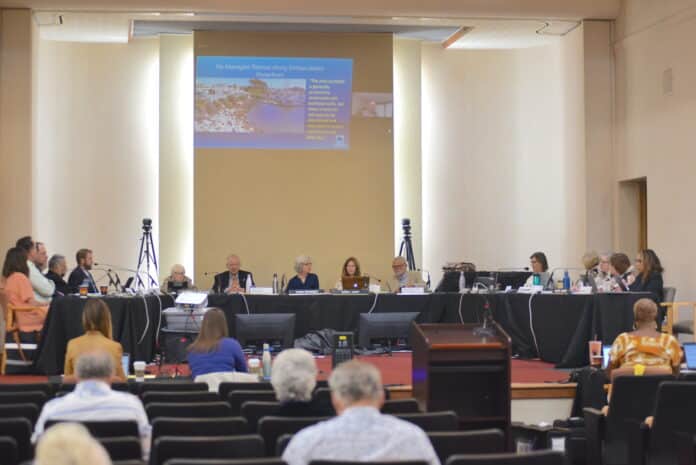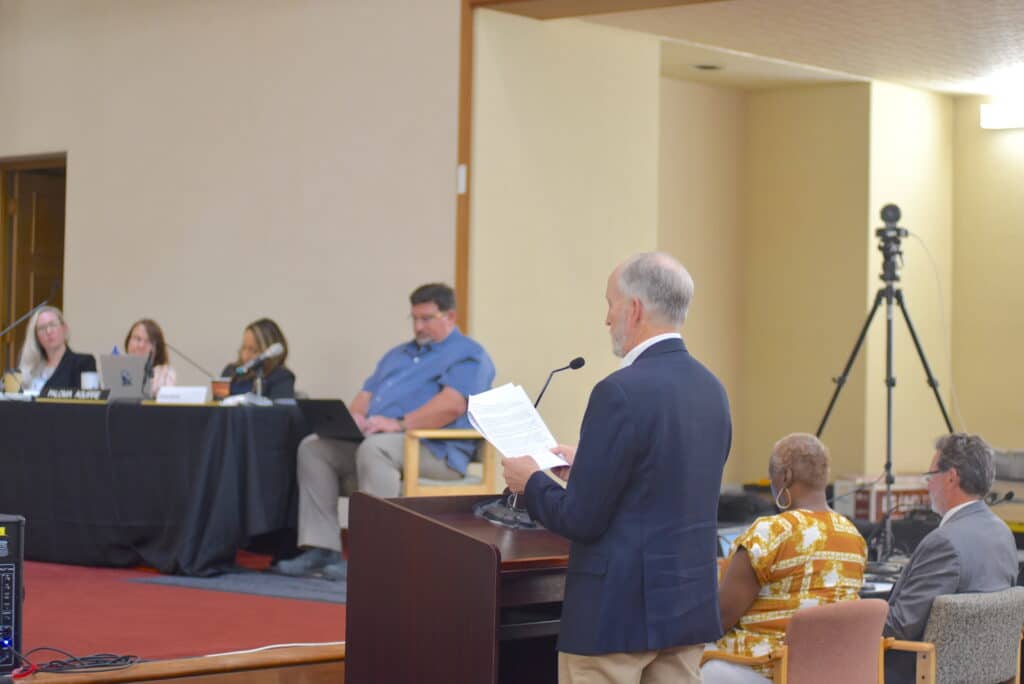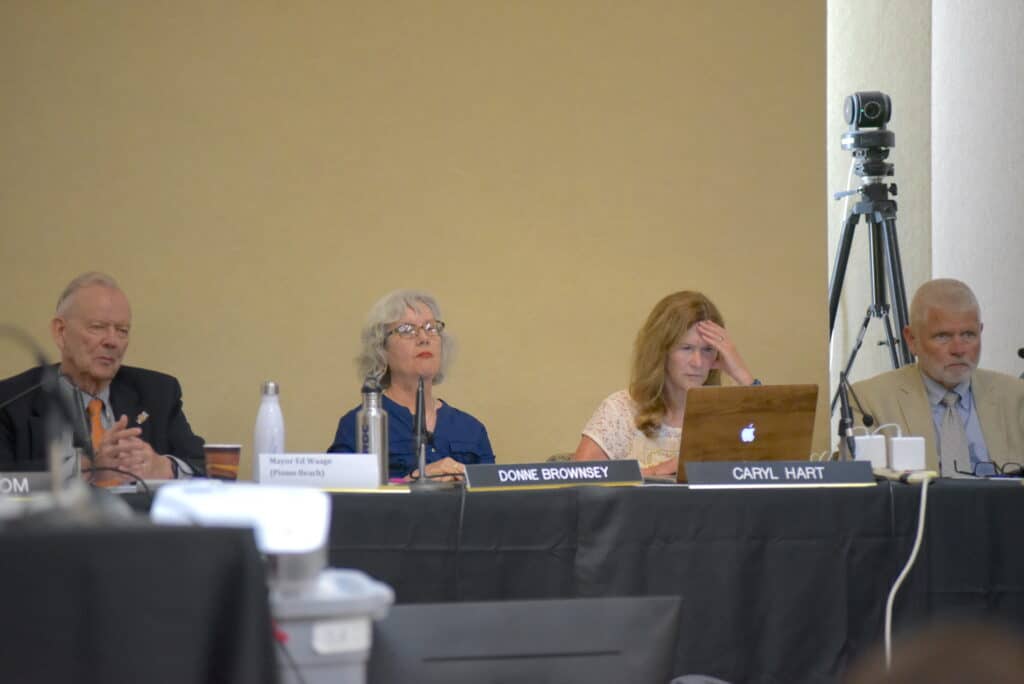
After a foreseen discussion, The California Coastal Commission (CCC) denied certification of the Land Use Plan Amendment No. LCP as submitted by the City of Malibu, stating it does not meet the requirements of and is not in conformity with the policies of Chapter 3 of the Coastal Act.
The City of Malibu resides within the California coastal zone, which means that all development and activity occurring within city limits (unless considered exempt) is subject to the regulations of the City’s Local Coastal Program (LCP).
According to Malibu’s City website LCPs contain the ground rules for protecting sensitive coastal resources and public access along the entire coastline of California. LCPs are required for all jurisdictions located within the coastal zone and the California Coastal Commission (CCC) is tasked with overseeing certification of those LCPs before they become law at the local level. Likewise, any amendments to an LCP must first be certified by the CCC before taking effect. Malibu’s LCP was certified in 2002 and grants the City authority to review and approve coastal development permits (CDPs) at the local level.
On Friday, Aug. 12, the CCC held a Sea Level Rise Local Government Workshop at King Gillette Ranch, and the last item addressed was on the City of Malibu’s request to amend the Land Use Plan (LCP) and Local Implementation Plan (LIP) portions of its certified LCP to address short-term rental use in residential zones.
Senior Facilitator of Zephyr Collaboration Caelan McGee said the last time the commission met in person was in 2019 due to covid-19 precautions.
CCC commissioners in attendance included Carole Groom, Mike Wilson, Executive Director Jack Ainsworth, Chief Deputy Director Madeline Cavalieri, Coastal Resilience Coordinator Kelsey Ducklow, and Chair Donne Brownsey.
Local city governments in attendance included Santa Barbara Councilmember Eric Friedman, Pismo Beach Mayor Ed Waage, Imperial Beach Councilmember Ed Spriggs, and San Luis Obispo County Supervisor Bruce Gibson.
The first half of the meeting was a public hearing on a joint workshop in partnership with the League of Cities, California State Association of Counties and local government officials to discuss sea level rise adaptation and Local Coastal Program (LCP) updates. The first item addressed was an action on Notice of Impending Development by the University of California Santa Barbara for demolition of a 664-square-foot one-story trailer on the main campus at UC Santa Barbara.
The Coastal Commission also provided an LCP program background, its priorities, eligible grants, and project examples.
Malibu Planning Consultant Joyce Parker-Bozylinski took the place of Planning Director Richard Mollica, who was not present in the meeting, and read his comments to the Coastal Commission.
“We believe that the city’s amendment is misrepresented in that the amendment is characterized as a ban on short-term rentals and that the city has been regulating short-term rentals today,” Parker-Bozylinski read. “The proposal allows properties to be utilized as short-term rentals and does not include any limitations on short-term rentals. The intent is to balance the need for visitors serving accommodations and responsible management along with the city’s needs to preserve and provide long-term and affordable housing options.”
Coastal Commission staff received over 231 public comments on the proposed amendment — 44 public comments expressed support, and 187 expressed opposition.
“Short-term rentals have a strong negative effect on the cost and availability of long term rentals and increase the cost of housing in general,” Parker-Bozylinski continued. “This is a serious concern in the city, which is suffering a significant decrease in school attendance due to the loss of housing stock.”
According to the staff report, approximately 414 properties remitted transient occupancy taxes for STRs in 2018. As of June 15, 2021, the city has approved 202 STR permits. Of the approved 202 STR permits, 71 multifamily units and 173 single-family units have been approved for use as STRs and most Malibu STR-approved permits are for single-family residences by a wide margin.
“Despite being a significant visitor-serving destination, Malibu’s lodging options are significantly limited compared to similar coastal towns in California,” the staff report for the item describes. “While there are several hotels and motels in cities surrounding Malibu, the approximate 21 miles of Malibu coastline is only serviced by approximately 130 hotel rooms, 142 RV sites, 35 tent sites, and the city’s existing short-term rental stock.”
The commission then moved to address the LCPs, which was Malibu’s amendment on short-term rentals. City commissioners that spoke were Mayor Paul Grisanti and Mayor Pro Tem Bruce Silverstein.

“What I see here today is a report that simply rejects and denigrates every person who has put in something in support of this compromise proposal,” Silverstein said. “This is a result of a multi-year process in Malibu people were heard in all directions. This allows short terms rentals, [and] it also protects the residential characters in Malibu.”
Coastal Commissioner Meagan Harmon, who’s also on Santa Barbara City Council, compared the public hearing from earlier and said the second part of the meeting was disappointing.
“This morning, we had our local government workshop and were talking so much about collaborative efforts and here we are, just the cognitive dissonance for me this afternoon is really disappointing in a lot of ways,” Harmon said. “I can assure you that our staff’s best interest is only upholding the law and making sure that the law is valued and that we understand it.”
Harmon also addressed her views on how much short-term rentals negatively affect communities and working families.
“In Santa Barbara, where I come from, the parliflation of short-term rentals has absolutely devastated our communities in many, many ways and it has reached a crisis level,” Harmon said. “It is working people who are struggling, who are leaving our communities, who can’t find housing, and what is devastating to me is the impact I really felt from working people.”
Harmon empathizes with the hard-working families in her community and other communities that continue to struggle to find affordable housing.
“I think the approach of a homeshare for me is probably the best balance that could be struck; even then, I have to say, it’s hard for me to say,” Harmon said. “Within the requirements of the Coastal Act, I think a homeshare and approach like this is the best that we can do and it balances in a way that I think we have to.”
Brownsey responded to the public comments and defended her staff to comments being made by members of the public that included speakers from Malibu.
“I would just ask that our staff be referred to and treated as the professionals that they are,” Brownsey said. “We find that very disheartening. It doesn’t improve your position at all, and we would never do that to your staff, so just keep that in mind.”
Brownsey said the proposal is inconsistent and said they want the City of Malibu staff to work with the Coastal Commission to find a balanced short-term rental policy proposal.
“Sincerely, we want you to come back with your team and work with our team so that six months, nine months from now, we can help you adopt a reasonable and a thoughtful short-term rental policy,” Brownsey said.

Brownsey said the makers of the motion are looking for a no vote, to which the motion failed 3-5.
According to the CCC’S website (documents.coastal.ca.gov/assets/cdp/appeals-faq.pdf), the commission takes an average of six to eight months to reach a final decision if the appeal raises a “substantial issue,” though it could take longer. Information needs, complexity of issues, extent of public interest, applicant responsiveness, and staff workload all affect the timing of the appeal process.
The agenda can be viewed on the CCC website at coastal.ca.gov. The next Coastal Commission meetings will be Sept. 7-9, and Oct. 12-14.
